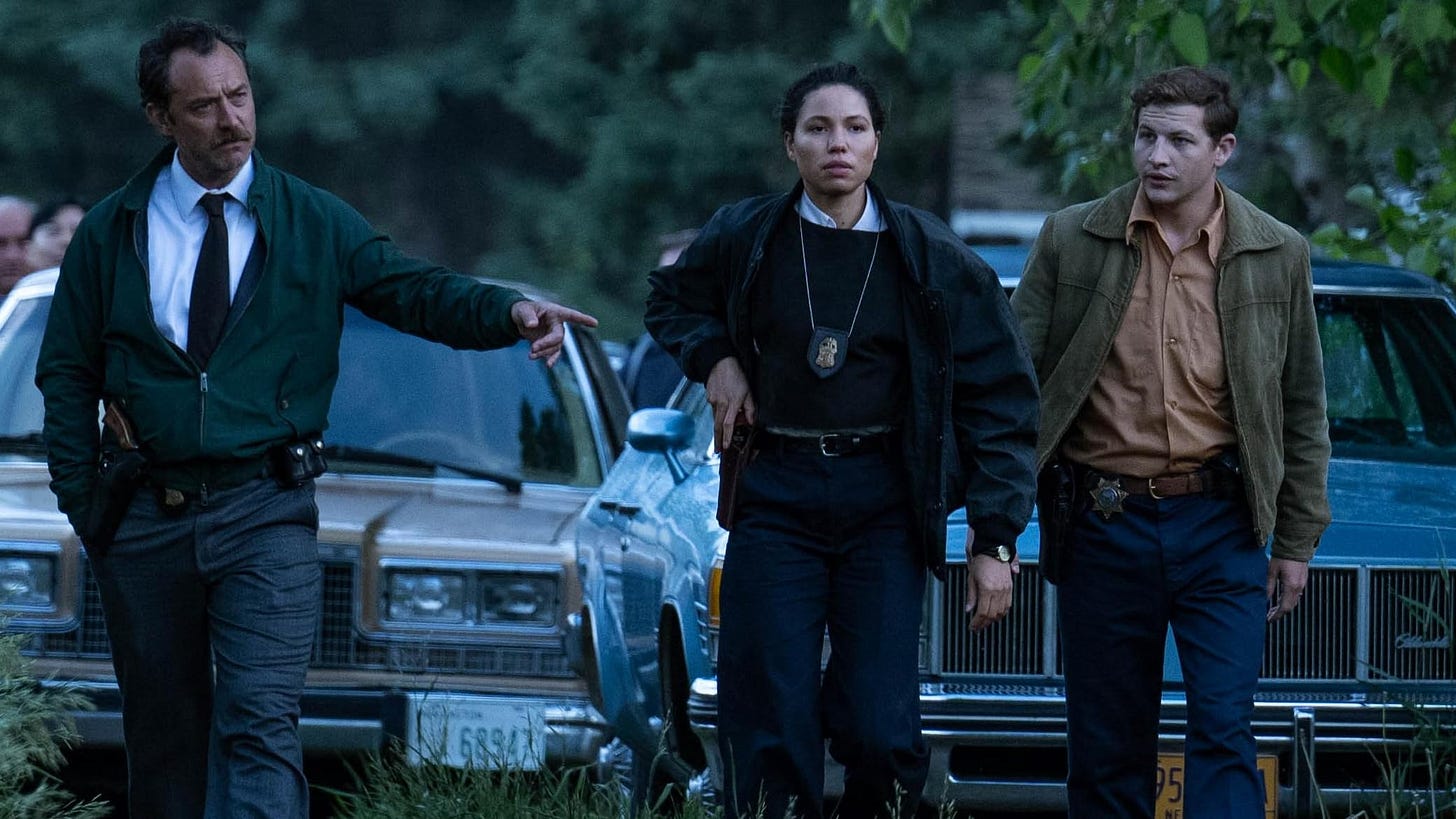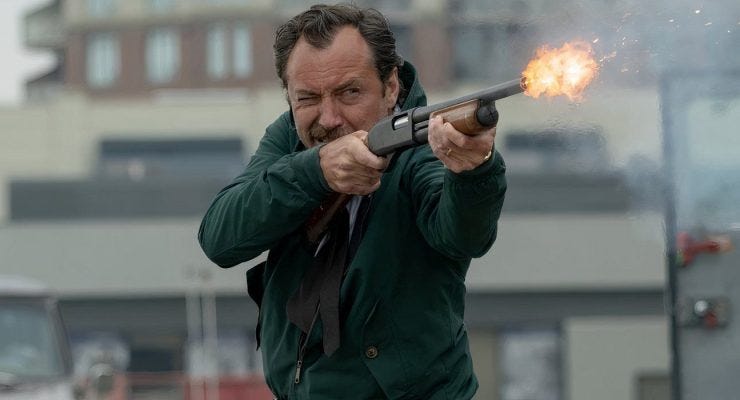'The Order' goes toe-to-toe with right-wing hate
Jude Law gets gritty in a fact-based crime thriller
“It’s a great country, but we’re all trapped in our own minds.”
Denver talk radio host Alan Berg said this line in 1983 (or, at least, a fictionalized version of Berg does in the new fact-based crime thriller “The Order”). But the words ring even more true now than they did 40 years ago, speaking to a fractured, polarized country that allows pockets of hate to fester.
Berg, who was Jewish and would spar with right-wing callers on his radio show, was murdered by neo-Nazis in 1984. (I grew up in Denver in the ‘80s, incidentally, and Marc Maron is perfect casting to play Berg in the film.)
While his death is relatively small part of the movie “The Order,” his voice gives the film its moral compass. Justin Kurzel’s film is otherwise a gritty, fact-based crime thriller about the FBI investigating a neo-Nazi group in the 1980s. But it’s those unsettling echoes to America today that give the film resonance.
Drawing from Kevin Flynn and Gary Gerhardt’s 1989 book “The Silent Brotherhood,” screenwriter Zach Baylin uses real-life neo-Nazis for his villains and composite characters for his heroes. FBI Agent Terry Husk (Jude Law) is a husk of a man, an alcoholic almost literally drinking himself to death (we can see the scars of open heart surgery on his chest). He’s retreated to the virtually-abandoned FBI office in Idaho for a little peace and quiet, hoping against hope that he can convince his estranged family to join him.
But despite the stunning Rocky Mountain landscapes (“The Order” was filmed in Alberta), the modern West is anything but serene. Right-wing hate groups are flourishing, and one of the nastiest is The Order. Led by the unsettlingly boyish Bob Matthews (Nicholas Hoult), the Order is using the hateful white power novel “The Turner Diaries” as a playbook, robbing armored cars and counterfeiting money to build a war chest for armed revolution.
(Photos courtesy of Vertical Entertainment)
Like a rural “Heat,” “The Order” tracks the movements and strategies on both sides as they move towards an inevitable conflagration. Matthews and The Order are scarily matter-of-fact as they carry out daring robberies, including a thrilling set piece where they use a bomb in a movie theater as a diversion for a heist in broad daylight.
Law effectively hides his golden-boy handsomeness behind a thick cop mustache, playing the grizzled cop who is always two steps ahead of his fellow law enforcement, but still one step behind his quarry. Husk takes in a protege, a smart local cop named Jamie Bowen (Tye Sheridan), and although we’ve seen the old dog-new pup dynamic many, many times in other police thrillers, they make a solid team.
“The Order” sticks to the facts in its resolution, and while audiences might prefer a more traditional showdown between Husk and Matthews, the uncertain ending feels right. After all, while the Order may have been defeated, its message of hate continues to infect American society decades later. A postscript notes that “The Turner Diaries” continued to be used as a guide by other right-wing revolutionaries from Timothy McVeigh to the Proud Boys on January 6.
“The Order” opens Friday in theaters. In Madison, it will play at Marcus Point, Marcus Palace, AMC Fitchburg 18 and Flix Brewhouse Madison.





Nice write-up, Rob. I enjoyed the film, especially Law's performance as a bleak and burnout cop, but I couldn't help but feel by the end that it lacked identity. We saw this type of movie trope done similarly multiple times before, and The Order doesn't add much to the genre besides being a decent addition. I hoped it would offer something extra like Under the Banner of Heaven (though that show's foundation is quite different), but it never did. Nevertheless, the cliches that The Order uses work well together, and the movie is engaging until its last moment. I just wish it would've been a little more memorable and outstanding.